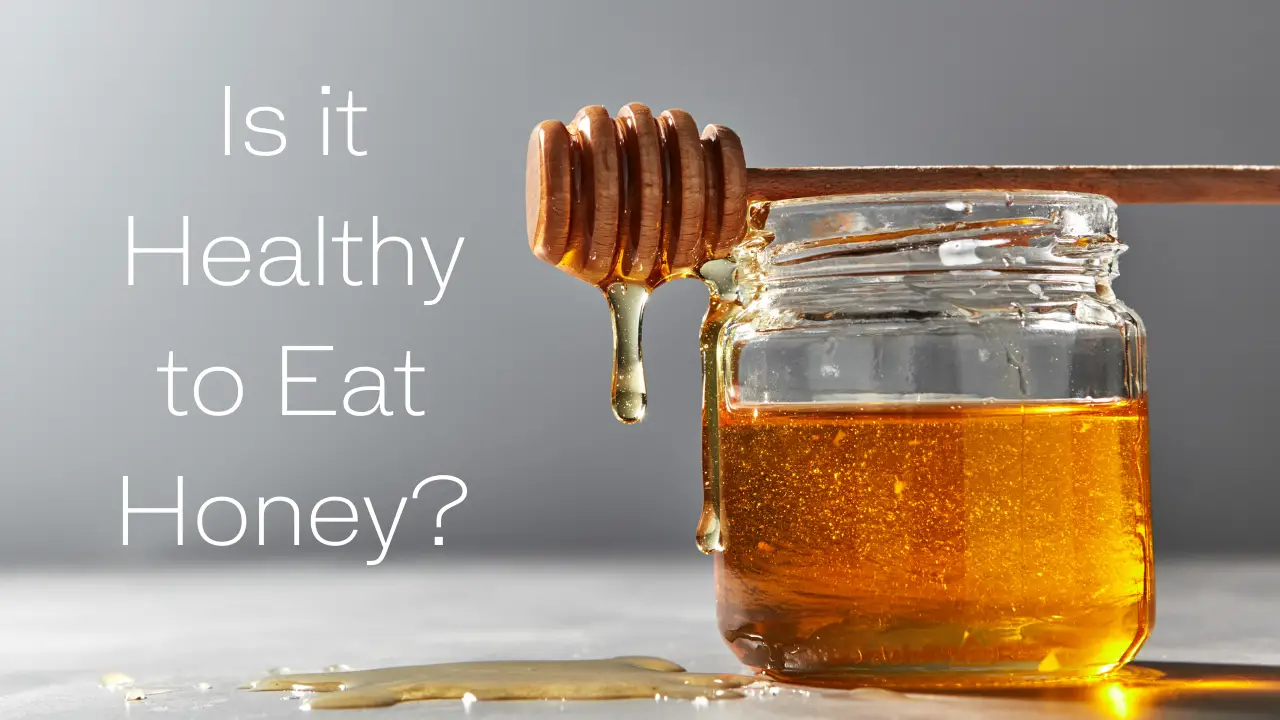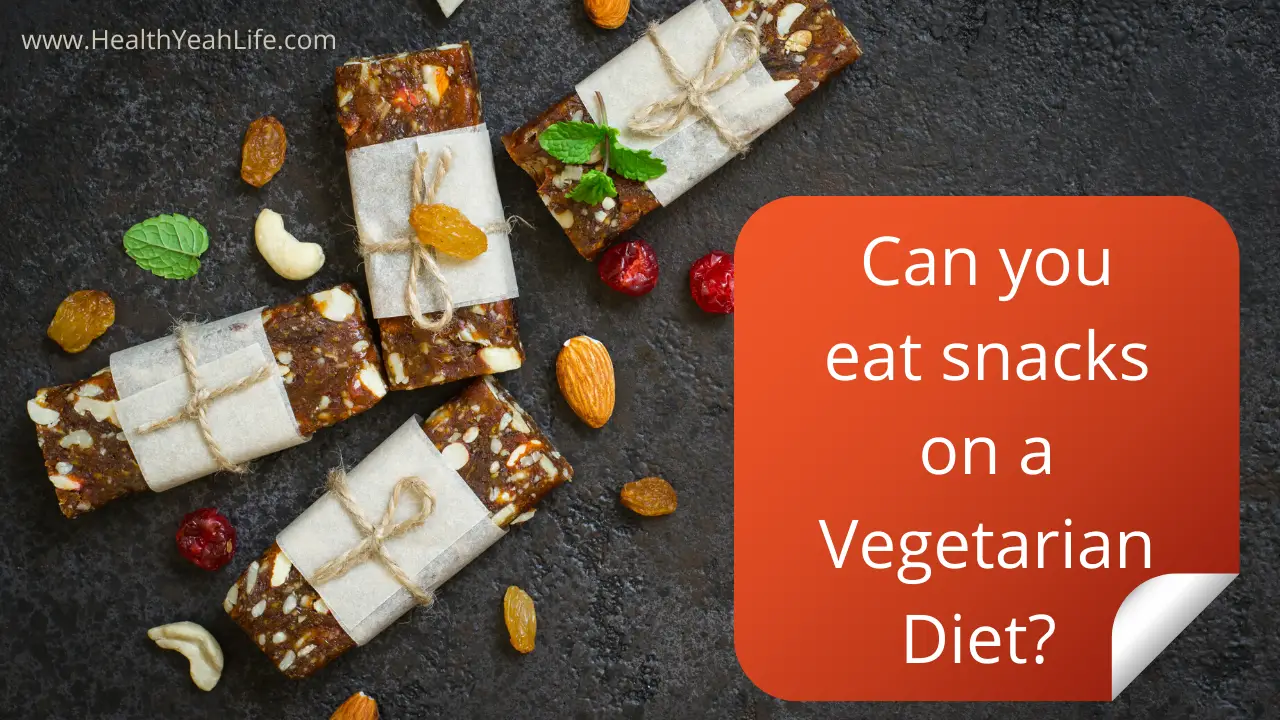Before the 2000s, traditional medicine was about natural ingredients that boost health. One of these proclaimed health boosters was honey. Can't get rid of that cough? Have a tablespoon of honey and black pepper. Need to treat wounds? Honey is the answer.
Today, science has caught up with most of these ‘mythical health benefits' and proved them to be correct. To what extent are these benefits truthful, and should you eat honey every day to attain them? Find the answers below to all your questions.
Defining Honey and Its Types
Honey: a liquid sweetener produced by bees.
Bees fly around and collect nectar from flowering plants in their vicinity. Once a bee's sacs are full of nectar, it returns to its beehive. There, it delivers the nectar, and the internal worker bees start chewing it to reduce its consistency to 20%. This consistency is where nectar is fully transformed into honey. The honey is then stored in the waxy cells of the beehive.
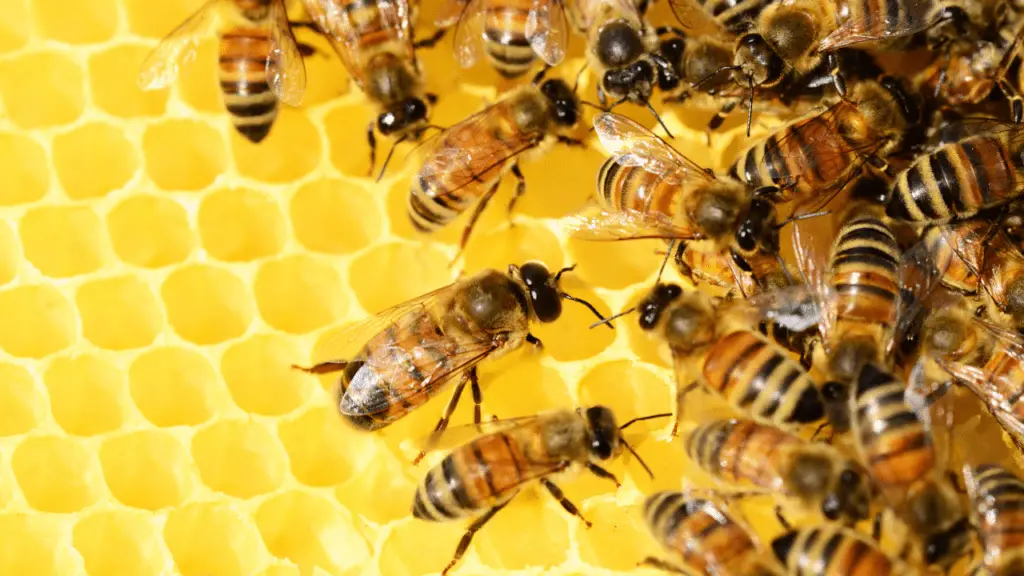
Due to its sugary nature, honey is mostly a combination of fructose and glucose. In addition to these sugar components, this liquid sweetener contains various nutrients and antioxidants. And that, folks, is what makes honey healthy and nutritious.
Honey comes in two primary forms. According to the origin, there are further divisions or additional flavors like clover, eucalyptus, buckwheat, wildflower, and many more. For now, we'll discuss the main categories.
Raw Honey:
As the name suggests, raw honey is the purest form of honey straight from the beehive. It's collected from bee farms and packaged as it is, without any additional ingredients or processing.
‘Raw' puts off many people due to the common misconception that it may have harmful bacteria. However, studies show that raw honey is safe to consume and healthier than its alternatives.
Pasteurized Honey:
Pasteurized honey, otherwise called filtered honey, originates from the same source as raw honey. The difference is that pasteurized honey undergoes processing for a more transparent texture and longer shelf-life.
The downside is that filtering honey removes numerous antioxidants and the nutritional value of this food. Some manufacturers may even add additives like corn syrup to enhance the flavors.
Health Benefits of Eating Honey
This sticky sweetener comes with several health benefits for your body. Imagine eating honey and gaining the health benefits alongside it. It's a win-win scenario. In the scientific field, the research never stops.
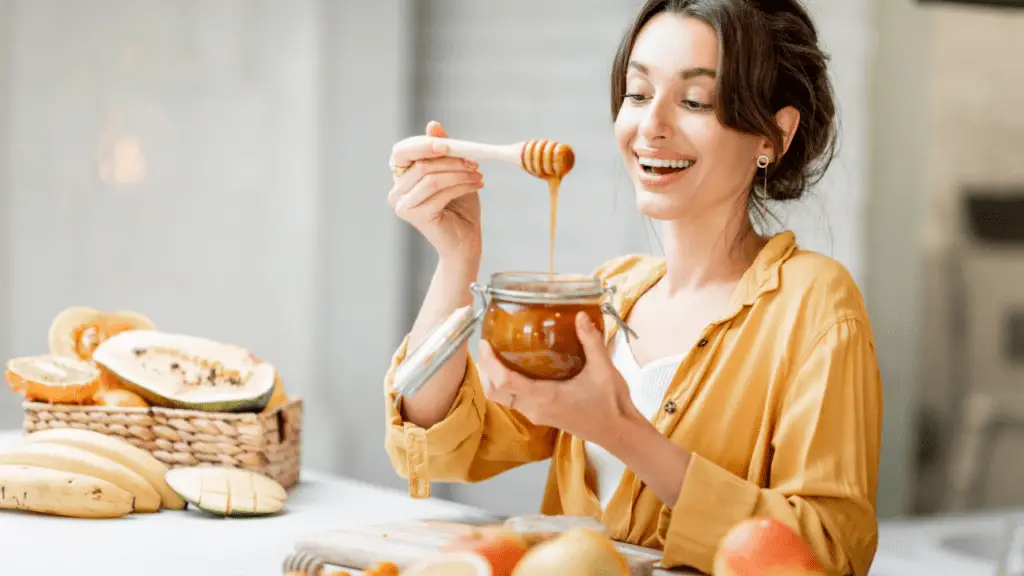
Although, researchers have already come across a handful of health benefits of honey. Here's what honey can do for your body:
Fights Free Radicals:
The antioxidants in honey act as an agent that fights against free radicals. What's up with free radicals? They're abnormal molecules in your body that become a cause of cancer, diabetes, and cardiovascular problems.
Studies show that the polyphenols in honey neutralize these free radicals. Another thing you should know is that the darker the honey, the more antioxidants are present in it.
Better Alternative for Blood Sugar:
Traditional white sugar is an enemy for your blood sugar levels. It spikes blood sugar levels up instantly. Well, so does honey. What's the difference? You need half the quantity of honey to get the same sweetness as traditional sugar.
For that reason, you're consuming less sugar. Also, honey is nutritious while sugar isn't, so you're getting the nutritional value with it, too.
Inhibits Heart Diseases:
Honey is the best compliant for good cardiovascular status in heart health. The key benefits of honey for cardiovascular health are increasing healthy fats, i.e., HDL, and regulated blood pressure.
Furthermore, studies depict that it can reduce the death of healthy cells. These factors combined suggest that honey is exceedingly beneficial for your heart.
Promotes Healing:
Ancient civilizations were convinced of the powers of honey for healing burns and wounds. Surprisingly, the practice continues today because, as luck would have it, honey contains antibacterial and anti-inflammatory properties.
As studies suggest, honey is extraordinarily beneficial as a topical treatment for wounds like ulcers and certain skin conditions. Similarly, it's also effective for accelerating the healing process of burn wounds.
Assists in Upper Respiratory Infections:
The age-old practice of eating honey for respiratory infections isn't a myth. Honey isn't an alternative to cough medicine, but many believe it works better than over-the-counter medications.
Remember that honey is only effective for upper respiratory infections, i.e., those affecting sinuses and the throat.
Can you Bake with Honey?
Honey is the perfect substitute for traditional refined (white) sugar. You can use honey instead of sugar in recipes.

What's the Ratio of Sugar to Honey?
You can replace sugar with honey at the same ratio. Ex. 1/2 cup honey instead of 1/2 cup of sugar. As the recipe calls for more sugar, you will want to reduce the amount of honey, as it is naturally sweeter. One cup of sugar in a recipe can be reduced down to 1/2 cup to 3/4 cup, depending on the sweetness desired.
How to Add Honey to Your Diet
There's no set ‘one size fits all method to adding honey to your diet. With the nutritional value and sweetened taste it comes with, you can go down any road. Here are several ways to include honey in your daily diet:

Add it to your Drinks:
A tablespoon of honey mixed in a cup of lukewarm water is the healthiest start to your day. Also, rather than using sugar for your coffee or tea, try honey instead. A minute amount goes a long way to sweeten up your beverage! You're keeping your body hydrated and gaining the health benefits of honey all in one cup.
Use it as a Sweetener:
Besides drinks, there are other ways to use honey as a sweetener. What you need to know is honey is better than traditional table sugar. Yes, it has calories, glucose, and fructose, but it doesn't come at the expense of your health. You're adding multiple nutritional elements only by using it as an alternative in your cookies, cakes, cereals, etc.
Top Off Your Meals:
Honey and healthy meals are a harmonious combination. There are numerous internet recipes to start healthy dishes with honey as the star ingredient. Before oven-baking them, you can use this ingredient to make your salad dressings or marinade proteins.
How Much Honey Should You Eat Daily?
How much honey is too much honey? Unfortunately, the answer isn't as simple as that. Some experts suggest eating only a tablespoon of honey daily. Although, daily honey consumption depends more on daily sugar intake than just the amount of honey you eat.

According to the American Heart Association, there's a limit to the number of calories you should get from added sugars. For women, it's 100 calories, and for men, it's 150 calories daily from added sugar.
One tablespoon of honey has around 50 calories, so it's approximately 2 tbsp for women and 3 for men. However, with additional ingredients like sugar in your daily diet, calculate the amount of honey you should eat accordingly.
Is Overeating Honey Harmful to Your Body?
As with all foods, moderation is critical, and anything in excess is disastrous for your body. No matter how healthy a food is, your body needs a balanced intake. Consuming more than the daily recommended amount can result in several health issues, including:
- Digestive Symptoms: The high amounts of sugar in honey can lead to digestive symptoms like bloating and diarrhea. Increased fructose levels can also cause constipation.
- Weight Gain: 50 calories/tbsp is a lot. And if you're increasing honey intake, those numbers will shoot up accordingly. Additionally, the sugar and carbohydrates in honey can cause weight gain when taken in excess.
- Tooth Decay: Sugar is your dental health's enemy. The more you consume, the more you're at risk of tooth decay. You can brush your teeth religiously, but it's good to cut down excess sugar intake simultaneously.
- Spiked Blood Sugar Levels: Where there is sugar, the glucose content in your blood is bound to scale up. Don't want your blood sugar levels to reach the sky? Limit honey consumption to the daily suggested amount.
- Drastically Low Blood Pressure: The health benefits of honey declare controlled blood pressure for patients suffering from high BP. However, too much honey can lead to dangerously low blood pressure.
When Should You Avoid Honey?
Honey is as healthy a food as they come. While this ingredient doesn't cause any diseases if you eat it in moderation, some people may need to avoid it. The following scenarios indicate cases when an individual needs to eat less or entirely avoid honey.
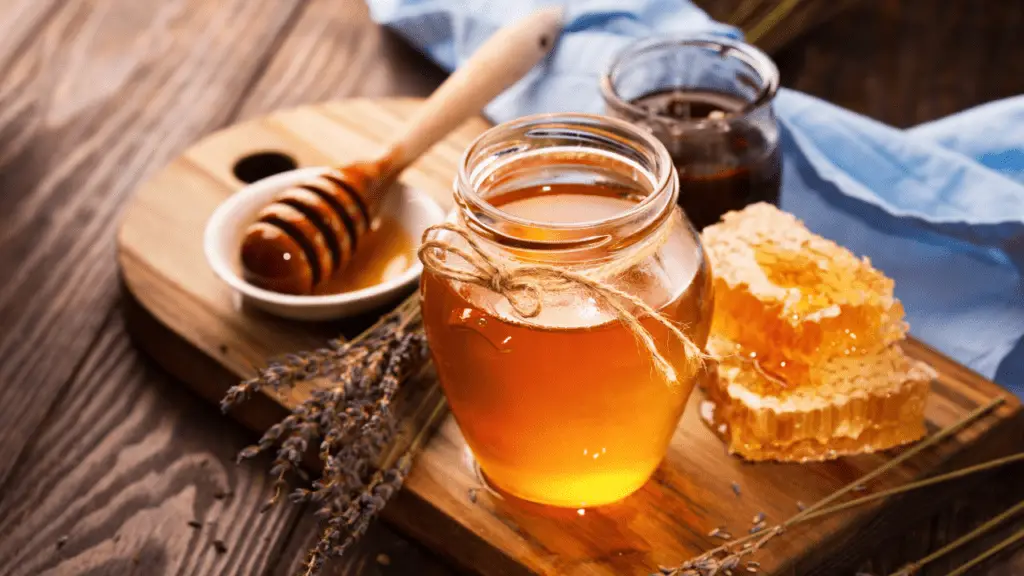
If You're Allergic:
People who suffer from bee pollen allergy or raw honey allergy need to avoid honey; otherwise, it can aggravate their symptoms. Raw honey allergy is rare, but there are many bee pollen allergies.
After noticing symptoms like swelling, itching, rashes, nausea, vomiting, breathing problems, or light-headedness, consult a doctor immediately after eating honey.
If You Have Diabetes:
Honey is a better alternative for sweeteners than refined sugar. However, honey, too, can elevate blood sugar levels. A single tablespoon of honey has 17g of sugar. For diabetes patients, this can cause numerous problems since they have to keep their blood sugar level in control.
If You're on a Vegan Diet:
Now, this one is a take it or leave it scenario. Most vegan experts state that honey comes from bees which are animals. Since a vegan diet is against animal exploitation, honey is an off-limits animal product.
On the other hand, another group contradicts this statement and claims that eating honey on a vegan diet works. Decide on which side you're taking on a vegan diet and act accordingly.
For Babies Under 1 Year Of Age:
Have you heard of the term infant botulism‘? It's a life-threatening disease for infants below 1-year-old. Honey isn't harmful to older children and adults, but it contains resistant bacteria. The immune system of infants is particularly at risk and cannot fight against this bacteria.
Therefore, medical experts strongly advise against giving honey to infants to protect them against this disease. Parents may believe that since honey is incredibly healthy, their babies should also get a load of these benefits. Giving your baby honey is not a wise decision, as discussed above.
Can You Eat Honeycombs?
What Is It?
The honeycomb is the most natural form of honey you can get your hands on. It's the whole structure where bees produce and store honey. As a result, it's filled with juicy honey, beeswax, and royal jelly. The perfect part is that not only is it 100% edible, but also delicious!
What Does It Taste Like?
The texture of the honeycomb is chewy and flavorful as well. So, you can either chew it like a piece of bubble gum and swallow or throw it out, whatever suits your tastebuds. You may be surprised the first time you taste a honeycomb, though.
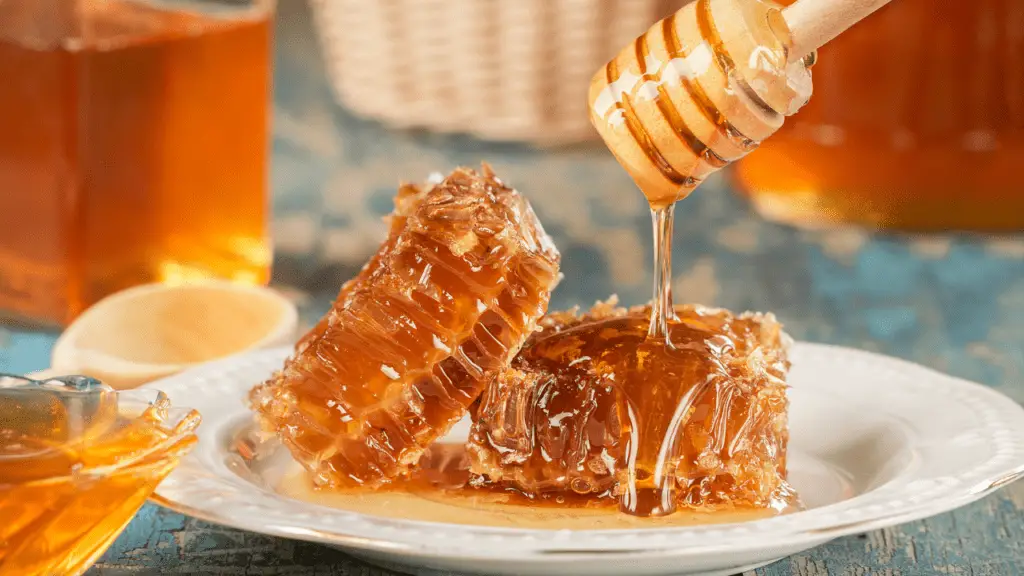
It doesn't taste like the usual honey products you get off the grocery store shelves. Instead, it has more texture due to the honeycomb's waxy cells.
Is It Healthy?
Aside from the health benefits of any honey type, there's another added advantage of honeycombs. Some types of honey, as mentioned above, go through extensive processing and refining.
Thus, the purity of all-natural honey is lost in pasteurized versions. To get the full range of nutrients and health benefits of raw, off-the-tree honey, eat honeycombs.
What Type of Honey Should You Buy?
Buying honey is becoming overwhelming with more and more varieties in the market with each passing day. Who would've thought choosing a simple ingredient like honey could boggle your mind so much?
You're most likely looking for a type that's a bang for your buck – nutritional and tasty. A kind that makes you go, “Honey, I'm home!” to your life partner and the one sitting on your table after a tough day at work.
Without further ado, here's the answer to this question: raw honey! Not all honey is created equal, and there's nothing quite like raw honey. Raw honey is much better in nutritional value health benefits and is tastier than processed forms.
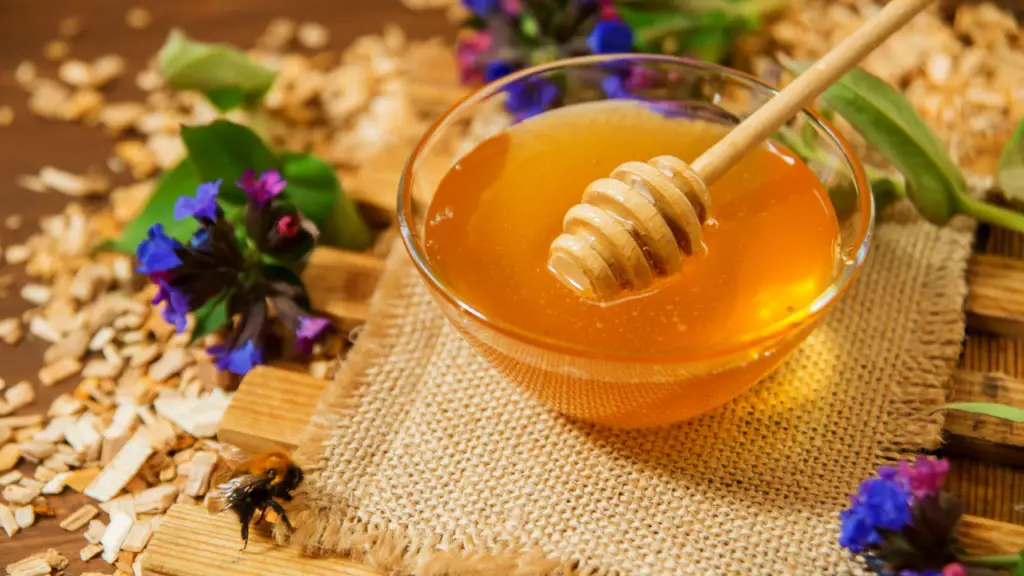
You can even taste and stumble upon your favorite type from options like manuka, alfalfa, blueberry, wildflower, etc. Furthermore, you won't be feeding your body unnecessary chemical additives and preservatives with raw honey.
Next time you're out for grocery shopping, look for honeycombs or raw honey. They're pricier, for sure, but that price has its worth.
You can also look for a local honey bee farmer in your area.
Final Take
Sweeten your life with nutritional value by adding honey to your diet. Ensure you're only eating it in balanced amounts, and you'll reap the benefits without plunging towards the downsides.
The health benefits of honey are enough to convince anyone that they need this superfood in their daily routine. Additionally, choose raw honey over processed honey to get the most of its nutritional value.
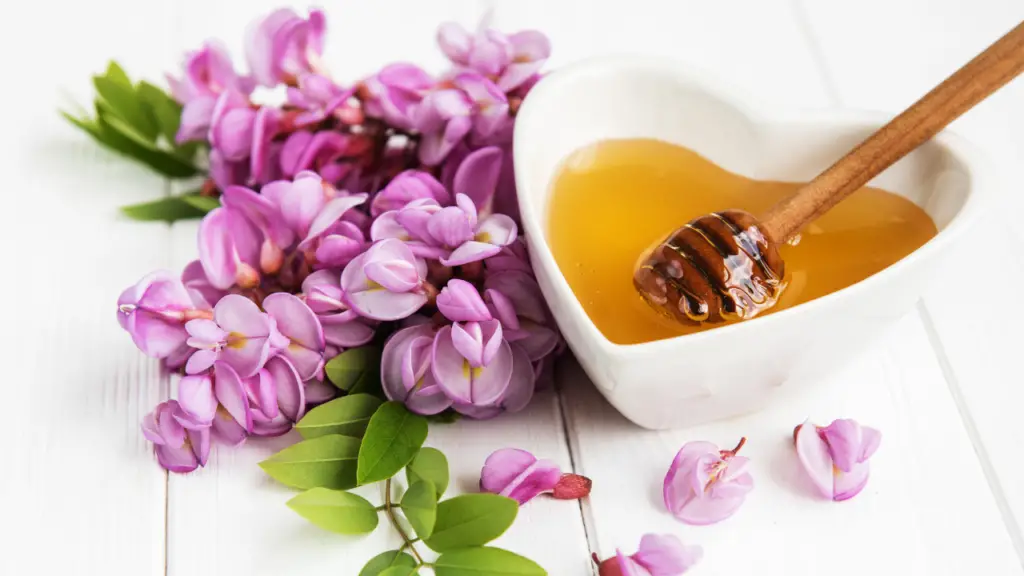
The owner of this website, HealthYeahLife.com is a participant in the Amazon Services LLC Associates Program, an affiliate advertising program designed to provide a means for sites to earn advertising fees by advertising and linking HealthYeahLife.com Review to Amazon properties including, but not limited to, amazon.com.

